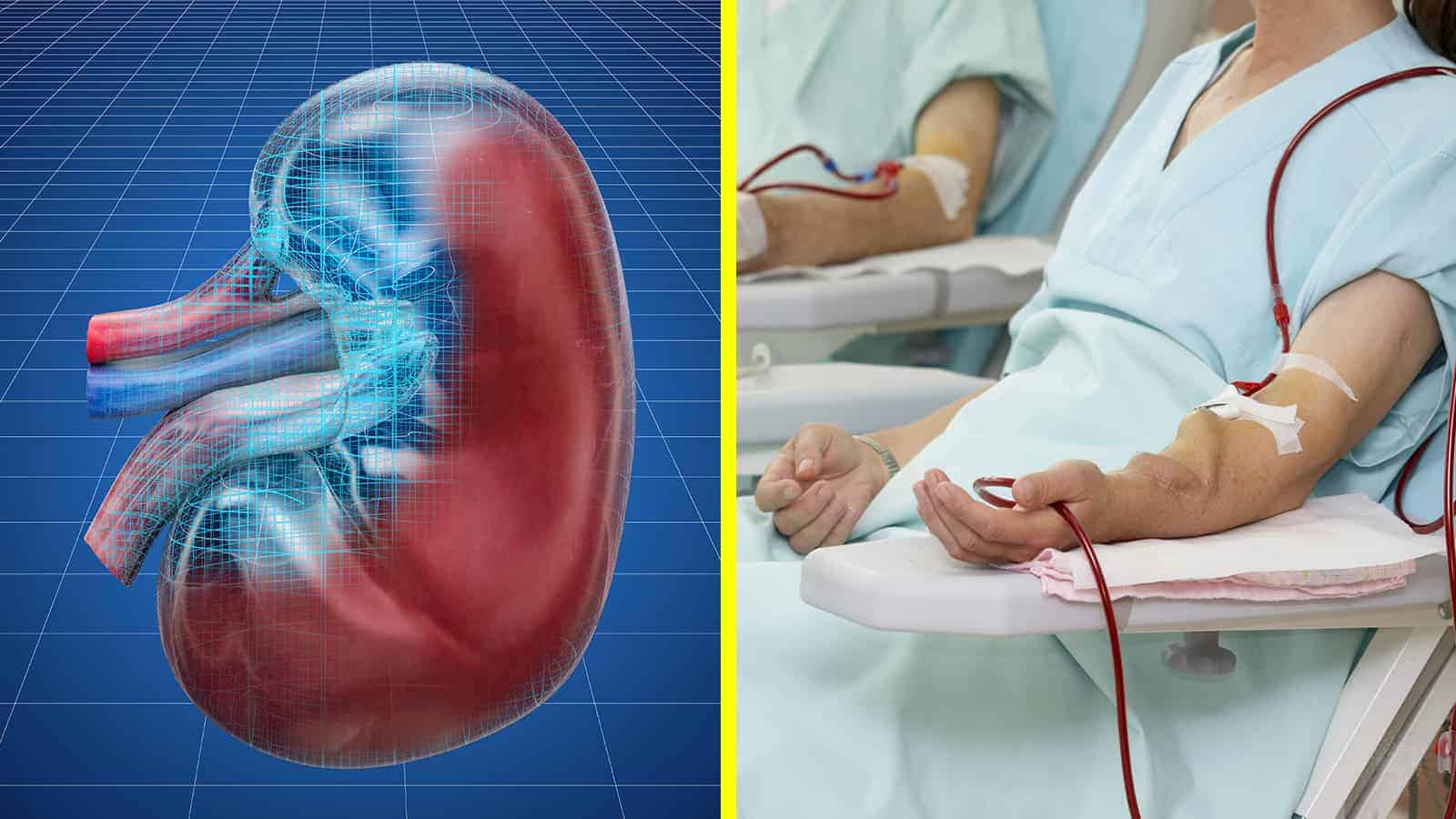If you have an end-stage renal disease (ESRD), then perhaps you have heard of the groundbreaking new treatment in the works that uses an artificial kidney. It brings a ray of hope to those who’ve suffered waiting for a donor. Is this artificial body part the answer to a significant medical dilemma?
Your kidneys are a biological engineering feat that keeps your blood clean with countless tiny filters called nephrons. After filtration, they send the waste to your bladder to eliminate as urine. Without your kidneys, your body would poison itself, and you couldn’t live.
Medical experts have voiced their concerns about the hazards of American lifestyles. They point to the alarming obesity epidemic that is caused by poor diets and lack of physical activity. All these factors lead to a rise in chronic kidney disease and failure.
The Relationship Between Kidney Disease and Other Diseases
Did you know that recent reports show that at least 15 percent of adults in this country have a renal disease? The number is probably more significant because many people have low-functioning kidneys that have yet to be diagnosed. Sadly, chronic kidney disease is among the top killer diseases in the modern world.
Since your body systems are interrelated, it makes sense that a disorder in one would affect your whole body. Not only are your kidneys part of your urinary system, but they are also a vital part of your circulatory system. Diseases that affect your heart and blood vessels will also cause trouble for your kidneys.
• Hypertension
Hypertension, also called high blood pressure, is a disease that causes too much pressure to be exerted on your arteries and veins. Since your kidneys are the central station for blood filtration, their many nephrons are loaded with blood vessels transporting blood back and forth. Hypertension can cause damage to these blood vessels, resulting in chronic kidney disease.
• Diabetes
Chronic kidney disease and kidney failure are classic comorbidities of diabetes. Think of your blood vessels as water pipes. If the water pipes in your home become overloaded with silt and other sediments, it will eventually damage them.
If you have uncontrolled diabetes, the surplus of sugar in your blood will do the same thing to your blood vessels. It can clog or even block vital blood vessels in your kidneys, resulting in kidney damage and improper blood filtration.
• Obesity
Obesity is a common denominator for both high blood pressure and Type 2 diabetes. Perhaps it is the most preventable condition that can lead to kidney disease or end-stage kidney failure. A proper diet and exercise regimen can bust the fat and minimize your risks.
Signs & Symptoms of Chronic Kidney Disease
If you have diabetes, hypertension, or other medical conditions, you can be at risk for chronic kidney disease or end-stage renal failure. Some of these signs and symptoms overlap with other diseases, so you should consult your primary healthcare provider for a proper diagnosis. Here are some common symptoms:
- Change of appetite and unexplained weight loss
- Change of sleeping patterns
- Edema in the hands, feet, or ankles due to water retention
- Dyspnea (shortness of breath)
- Blood in the urine
- Muscle cramps
- Increased urge to urinate, especially during the night
- Constant skin itchiness
- Lightheaded feeling or headaches
- Lack of sexual performance in male patients
There’s no easy fix when your kidneys are failing. When dialysis is no longer sufficient, kidney patients must rely on a transplant. These can be taken from a living donor or from an organ donor who has died.
None of these options are in vast supply because donor kidneys must be a perfect match for the transplant surgery to be a success. It’s difficult to find living donors who will give a kidney to a stranger, and not everyone with viable kidneys who dies is a registered organ donor. No wonder the waiting list for a kidney transplant is so long because the demand exceeds the supply.
Kidney patients often pass while waiting for a transplant, since their bodies can’t live long without at least one properly functioning kidney. The wait for a kidney transplant can take years, and these patients don’t have enough time. Even if they are fortunate enough to get the transplant surgery, they can die from organ rejection or other complications.
The Evolution of Kidney Dialysis
If you have chronic kidney disease and your kidneys are failing, your only hope of surviving is dialysis. In the 1940s, Dr. William Kolff invented the first dialysis machine and called it the “artificial kidney.” After caring for his many renal patients and observing their mortality rate, he correctly concluded that their blood could be artificially filtered to prolong their lives.
He brought his invention to the United States and introduced it to renal specialists at Mt. Sinai Hospital. His work brought limited success for patients who were in renal failure, but his artificial kidney machine couldn’t help those with end-stage renal disease or ESRD.
Twenty years later, another kidney specialist named Dr. Belding Scribner built on Dr. Kolff’s work and devised an artificial kidney that could filter toxins from ESRD patients’ blood. It worked through a port that drew blood from the patient’s arm through the filtering machine, then pumped the cleansed blood back into the patient. Scribner’s portable device allowed renal patients to do dialysis from the comforts of home.
Today, most people go to a dedicated dialysis center for treatment rather than doing the process at home. These centers are found in most major hospitals and private clinics across America. Those with kidney failure or end-stage kidney disease usually have dialysis treatments from 3-4 hours at least once to three times each week, and sometimes daily for severe cases.
The Cons of Kidney Dialysis
Yes, this artificial kidney filtration can prolong renal patient’s lives. However, it’s a temporary treatment for the symptoms, and it can’t cure the failing kidneys. If you are a dialysis patient, it’s difficult to have a normal schedule because you are connected to the artificial kidney for hours each week.
Kidney patients must take many medications to minimize their symptoms, and some of these drugs can have substantial side effects. Dialysis is an expensive treatment, and most private insurance plans and Medicare will only cover 80 percent of the cost. The 20 percent left for the patient to pay can be staggering and can cause serious financial problems.
The artificial kidney is merely a bandage for kidney failure and end-stage kidney disease. Of the estimated 468,000 Americans on dialysis each year, roughly 20-25 percent will survive their first year of treatment. Only about 35 percent will live past five years.
The Birth of Bionics
As of now, the only treatment options for kidney disease patients is a transplant or dialysis. While survival odds are much better for those who get a transplant, patients often die while waiting on the long list. Dialysis can prolong these patient’s lives, but they often lose the quality of life and have a slim margin of survival.
With such dilemmas as these, advanced technology may hold the keys to a better solution. Remember the iconic 1970s television show about the man and woman who were rebuilt with bionic parts? What was then science fiction is a reality in the 21st century.
Of course, current medical technology has yet to produce a human with superpowers, but bionic parts have revolutionized health and medicine. In 1982, the first artificial organ, a bionic heart, was successfully transplanted. Advances in bioengineering continue to find artificial solutions for other organ transplants, such as an artificial kidney.
Final Thoughts on The Artificial Kidney Project
You may have already heard about the conglomerate of American kidney experts and bioengineers called the Kidney Project if you are a kidney patient. Their goal is to replace traditional dialysis with a bionic kidney that is transplanted in the patients’ bodies. It’s a complex marriage of the human body and machine that can offer the quality of life and more time to kidney patients.
This innovative artificial kidney debuted during National Kidney Week at the American Society of Nephrology in November 2019. The Kidney Project is centered at the University of California-San Francisco Schools of Pharmacy and Medicine, with Shuvo Roy as the project director. Roy and his associates have a positive outlook on the bionic kidney’s success.
Instead of kidney patients being hooked up to a traditional dialysis machine, this artificial kidney will be surgically transplanted into their bodies. It will use high-tech filters to remove toxins from the blood, just like a human kidney. The device is still in its developmental stage and can go to clinical trials with FDA approval, which experts hope will be soon.
Chronic kidney disease is severe and can affect your quality of life and even cause premature death. If the new artificial kidney is successful and gets approval, it may be a ray of hope for kidney patients worldwide. If you follow a healthy lifestyle and get regular checkups with your primary healthcare provider, you may keep your kidneys happy and healthy for years to come.
















 Community
Community

